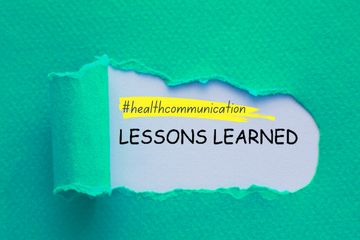You’re reading Lessons Learned, which distills practical takeaways from standout campaigns and peer-reviewed research in health and science communication. Want more Lessons Learned? Subscribe to our Call to Action newsletter.
Using digital health technologies can help elderly individuals to access their appointments and manage chronic conditions, improving their overall healthcare experience. In spite of this, digital health technology adoption is low among elderly people. A team of researchers at the University of Singapore investigated how social norms, attitudes, and people’s confidence in their ability to use digital health technologies impacted use of the technologies among 1,070 elderly individuals in China and the United States (DOI: 10.1080/10410236.2023.2297120).
What they learned: In both China and the United States, the perception of how widely digital health technologies are used impacted elderly people’s beliefs about approval of such technology use within their social circles. This, in turn, influenced their adoption of digital health technologies. Notably, in China, individuals’ beliefs about how common it is to use digital health technologies directly impacted their actual use of the technology. Additionally, in China, beliefs about how common use was also bolstered individuals’ confidence in their ability to use these technologies, contributing to increased digital health usage. In the United States, beliefs about how common use of digital health technology was affected individuals’ attitudes toward the technology, subsequently influencing their digital health technology use.
Why it matters: Given the cognitive struggles faced by the aging population, their decision-making relies more heavily on cues like social norms. Recognizing and leveraging these norms could boost digital health adoption, ultimately improving health outcomes.
➡️ Idea worth stealing: Pay special attention to elderly people’s beliefs about how common and approved of a behavior is when creating programs to change their behavior.
What to watch: How norms around elderly digital health use change through improved communication from healthcare providers, public health practitioners, and digital health companies.




